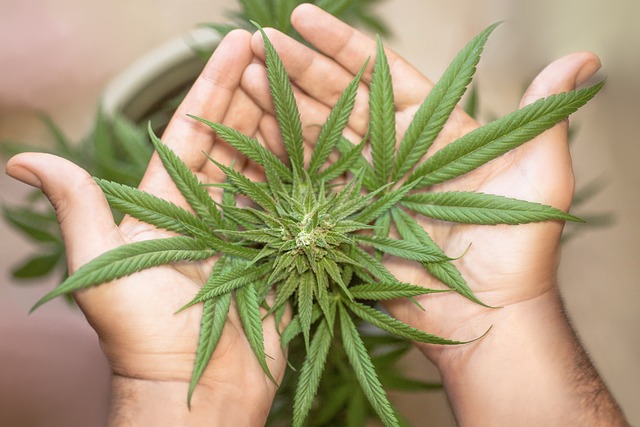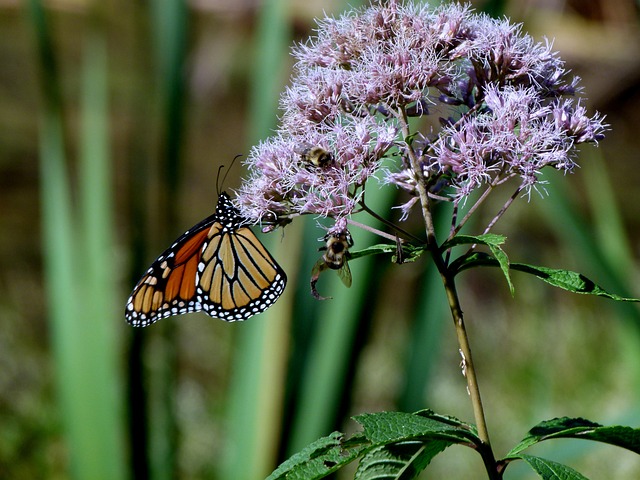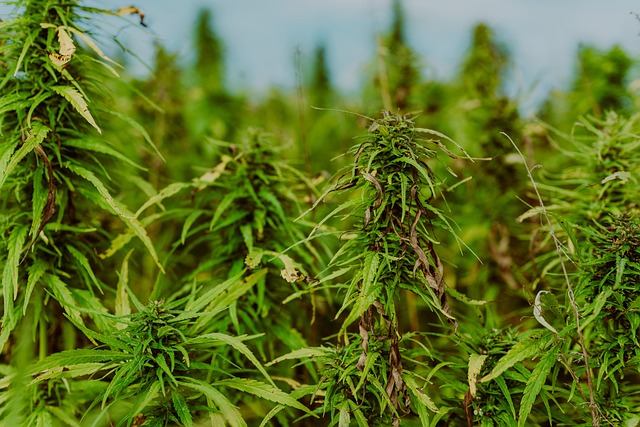THCA (Tetrahydrocannabinolic Acid), a non-psychoactive compound found in hemp plants and legal under Florida's medical cannabis program for its potential therapeutic benefits, including anti-inflammatory and analgesic effects, has become a popular alternative for residents with qualifying conditions. With less than 0.3% THC content, it offers relief without the psychoactive effects of THC. However, users should be aware that while side effects are typically mild—such as dry mouth or red eyes—higher doses can lead to more significant impacts on motor skills and cognitive functions. It's important for consumers to start with low dosages, heed healthcare provider advice, especially for those with pre-existing conditions or on other medications, and use products from reputable sources. THCA legality in Florida is subject to change, so staying informed and compliant with state regulations is essential for safe and responsible use. This overview highlights the therapeutic potential of THCA as a medical alternative within Florida's legal framework, emphasizing consumer education and adherence to health and safety guidelines.
Exploring the nuances of THCA flower’s legal status and potential side effects in Florida, this article sheds light on a substance that’s garnering attention for its medicinal properties. We delve into how THCA, the non-psychoactive precursor to THC found in cannabis sativa plants, is perceived under Florida law and its reported effects on consumers’ well-being. With a focus on informative clarity and consumer safety, this piece aims to provide a thorough examination of THCA flower’s implications for residents of the Sunshine State.
- Understanding THCA Flower: Legal Status and Side Effects in Florida
- THCA Flower Side Effects: A Comprehensive Overview for Consumers in Florida
- Navigating the Impact of THCA Flower: Potential Effects and Considerations for Florida Residents
Understanding THCA Flower: Legal Status and Side Effects in Florida

In recent times, the discussion surrounding cannabinoids and their derivatives has gained significant traction, with THCA (Tetrahydrocannabinolic Acid) flower emerging as a topic of particular interest. THCA is a non-psychoactive compound found in the Cannabis sativa plant that is believed to possess potential therapeutic properties. As of the current understanding, THCA legal status in Florida allows for its use within the confines of the state’s medical cannabis program. Patients with qualifying conditions can access THCA flower as an alternative remedy, leveraging its reported anti-inflammatory and neuroprotective effects without the psychoactive impact associated with its decarboxylated form, THC (Tetrahydrocannabinol).
However, it is crucial for consumers to be well-informed about the potential side effects of THCA flower. While generally considered safe, some individuals may experience mild adverse reactions, such as dry mouth or red eyes, which are typical of cannabis use. These effects tend to subside as one becomes accustomed to the substance. Additionally, due to its interaction with the endocannabinoid system, THCA flower may affect a person’s motor skills and cognitive functions, potentially leading to changes in mood or altering perception. It is imperative for users to adhere to dosage guidelines provided by healthcare professionals or dispensary advisors. In Florida, where the regulatory landscape is continually evolving, staying informed about the legal status of THCA flower is essential for both patients and recreational users alike. Understanding the nuances of this compound’s legality and effects within the state can help individuals make informed decisions regarding its use.
THCA Flower Side Effects: A Comprehensive Overview for Consumers in Florida

THCA, or Tetrahydrocannabinolic Acid, is a non-psychoactive cannabinoid found in the Cannabis sativa plant, and it’s legal in Florida under certain conditions. Consumers in Florida interested in the potential benefits and side effects of THCA Flower should be well-informed due to its growing popularity. THCA is often noted for its therapeutic properties, including anti-inflammatory and analgesic effects, without the psychoactive impact associated with its decarboxylated form, THC. While many explore THCA Flower for its potential health benefits, it’s crucial to understand its side effects. Reported side effects are generally mild but may include dizziness, dry mouth, and reduced blood pressure. These effects are typically experienced at higher doses or by individuals sensitive to cannabinoids. For those in Florida considering THCA Flower, it’s advisable to start with a low dose to gauge individual sensitivity and to consult with a healthcare provider if they have existing health concerns or are taking other medications. Understanding the legal status of THCA in Florida is also essential, as it must contain less than 0.3% THC to be classified as hemp and legally sold. Consumers should always purchase from reputable sources to ensure product quality and safety.
Navigating the Impact of THCA Flower: Potential Effects and Considerations for Florida Residents

Navigating the impact of THCA flower, a non-psychoactive compound found in cannabis plants, has become a topic of interest for Florida residents following its legalization for medical use. The Therapeutic Hemp Cannabidiol Acid (THCA) is renowned for its potential therapeutic properties without the psychoactive effects associated with delta-9-tetrahydrocannabinol (THC). For those in Florida seeking natural relief from various ailments, understanding the potential effects and safe usage of THCA flower is paramount.
Initial studies suggest that THCA may offer analgesic, anti-inflammatory, and neuroprotective benefits, making it an attractive option for managing pain, reducing inflammation, and potentially protecting against neurological disorders. However, as with any supplement or medication, potential side effects should be considered. Side effects reportedly include mild gastrointestinal discomfort, drowsiness, and dry mouth, which are generally mild and resolve without intervention. Nevertheless, it’s crucial for Florida residents to consult healthcare professionals before incorporating THCA flower into their wellness regimen, especially given individual differences in how the body processes cannabinoids. Adhering to state regulations regarding THCA’s legal status ensures compliance with medical cannabis laws, thereby promoting safe and responsible use of this compound.
In wrapping up our exploration of THCA flower, it’s clear that while this compound holds potential, understanding its legal status and side effects is paramount for residents of Florida. The comprehensive overview provided here aims to equip consumers with the knowledge needed to navigate the effects and considerations associated with THCA flower use responsibly. As regulations evolve, staying informed on the legality of THCA in Florida remains essential. Consumers are encouraged to approach its consumption with caution, taking into account personal health factors and adhering to state guidelines. With a growing body of research, the conversation around THCA’s benefits and risks is ongoing, underscoring the importance of continued study and responsible use within the legal framework established for Florida residents.
